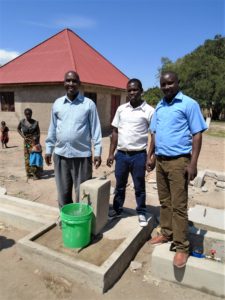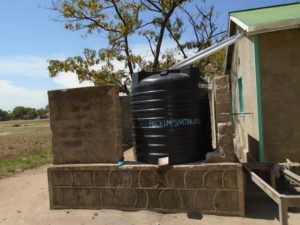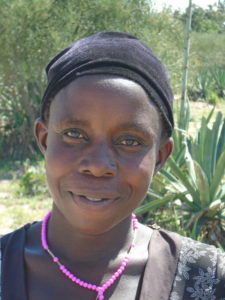Jarvis Cocker posed the question in the iconic Pulp song. He answered it in the context of his own community but what about Tanzania?
Christine and John have been in Mwanza for a month and have been struck again by the impact of illness on the ordinary people in their circle of colleagues and friends. Two children at the Children’s Centre have suffered malaria, along with one member of our staff. He also was diagnosed with hookworm and one of the Moving-on young men has typhoid. These are folk who are better off than most.
Other people in the community catch these endemic infections without the benefit of an adequate diet, clean water and access to medical help. If you are poor, you are reluctant to attend hospital and risk the treatment bills. The commonest dental treatment is extraction, for exactly the same reason. Treatable conditions get worse and complications ensue.
The results emerging from Busega Scotland’s health insurance scheme at Chole, reveal how often families access treatment at Bukumbi Hospital. This is causing financial issues for the hospital but is providing treatment for people who otherwise would not be able afford their care.

Ordinary people in UK can generally get by. This is not always the case in Tanzania. The subject of Mr Cocker’s song would not want to live like the common people here, we are sure!
Sanitation and nutrition training
The provision of running water at the Children’s Centre and in Mayega village, has created an opportunity. In the Centre, work has been underway for a while to improve nutrition. The kitchen garden is providing green vegetables and the ladies in the hen house faithfully produce their eggs. The kitchen has made food preparation easier.
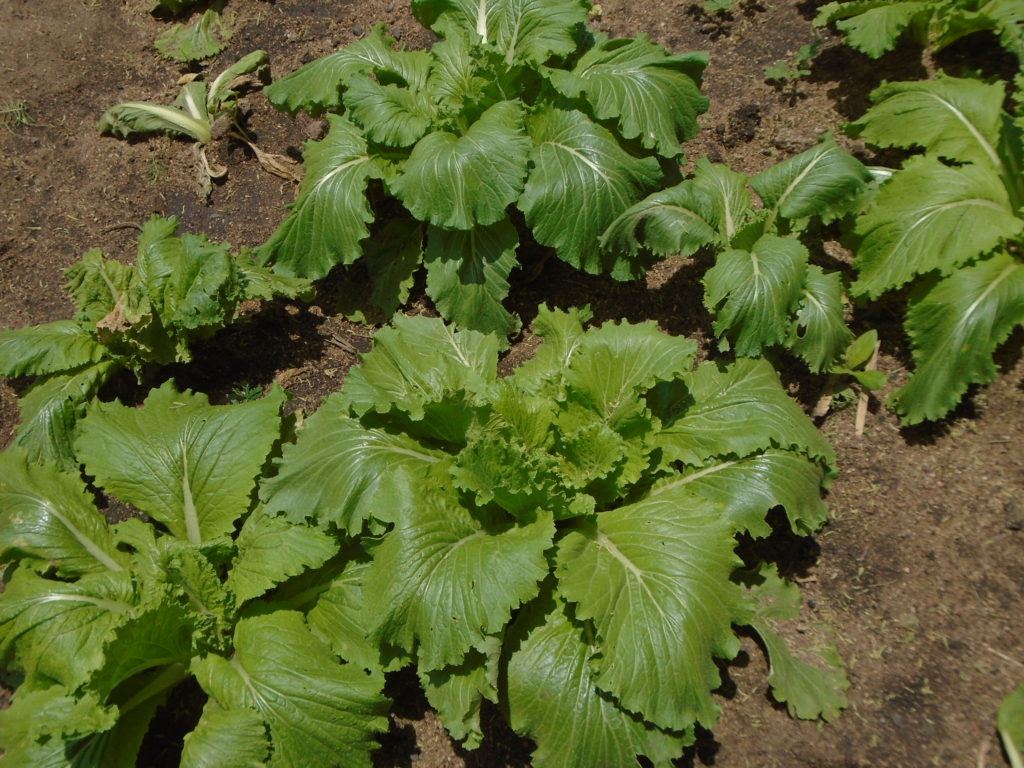
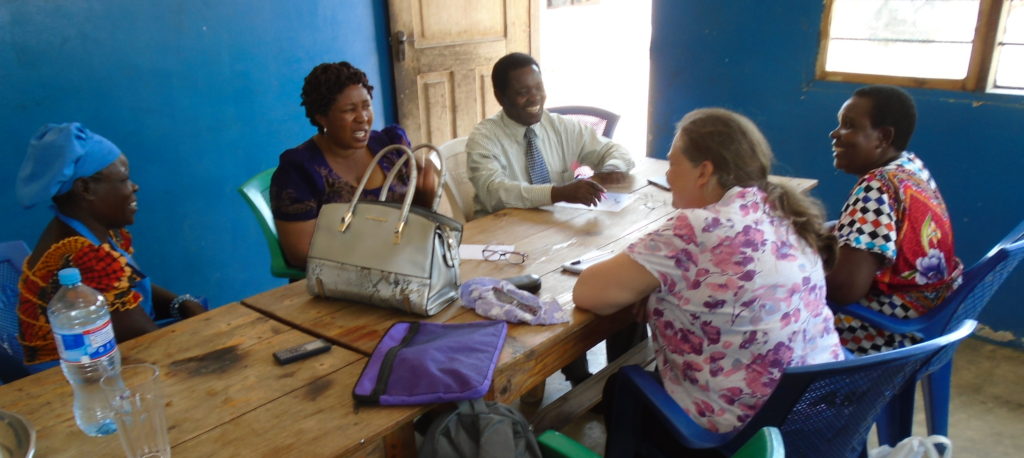 The starting point for sanitation improvements was a meeting with Sudi Musa, the District Health Officer, and Rahel Membo, the District Health Co-ordinator(Education Officer) . The meeting involved Christine, Matron Leya and Cook Victoria. Ms Membo was very forthright in challenging current sanitation practices and would not accept ‘that’s how we’ve always done it’ as an excuse. A tour of the compound has led to an action plan and recommendations for physical improvements. The simplest change will be the purchase of bins to manage the rubbish more effectively. A further meeting will be convened to plan training with the children, so they and
The starting point for sanitation improvements was a meeting with Sudi Musa, the District Health Officer, and Rahel Membo, the District Health Co-ordinator(Education Officer) . The meeting involved Christine, Matron Leya and Cook Victoria. Ms Membo was very forthright in challenging current sanitation practices and would not accept ‘that’s how we’ve always done it’ as an excuse. A tour of the compound has led to an action plan and recommendations for physical improvements. The simplest change will be the purchase of bins to manage the rubbish more effectively. A further meeting will be convened to plan training with the children, so they and 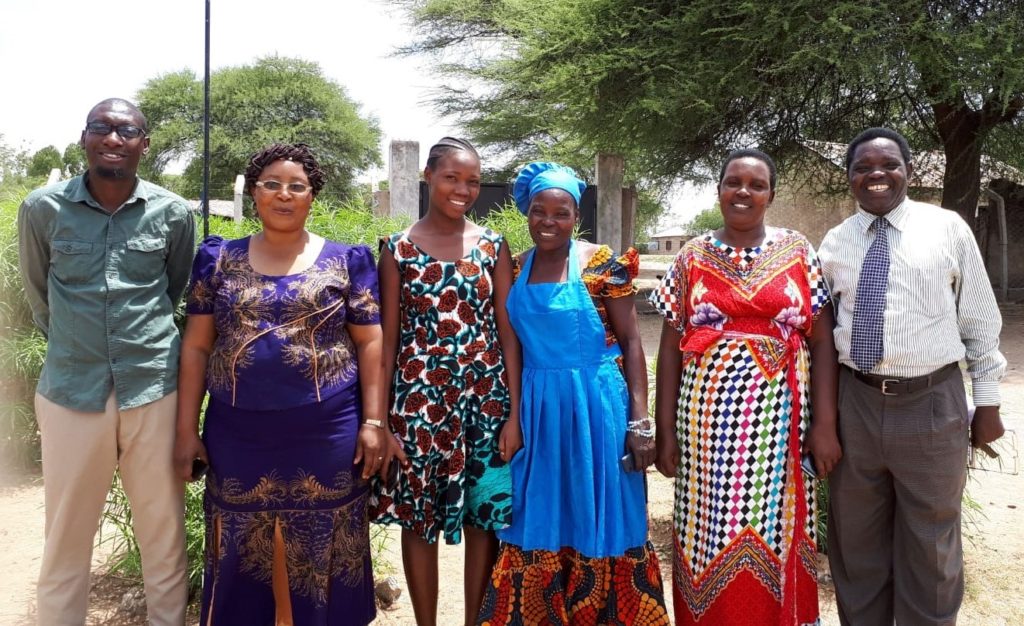 the staff go forward together.
the staff go forward together.
We are also expecting the delivery of seedlings for fruit and shade trees, so we can produce some of our own fruit and have a nicer physical environment. The idea is to get the children to ‘adopt the trees’ and be responsible for the ones they are allocated. At Mayega, self-help is inevitably the order of the day!

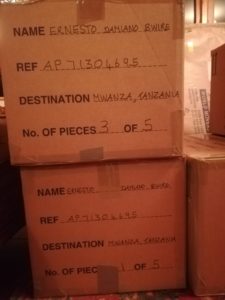 We are delighted to report that a consignment of books from Lhanbryde Primary School in Moray has reached Mayega Primary School in Busega District. It consists of two full primary reading schemes, that are still used widely in Scotland.
We are delighted to report that a consignment of books from Lhanbryde Primary School in Moray has reached Mayega Primary School in Busega District. It consists of two full primary reading schemes, that are still used widely in Scotland.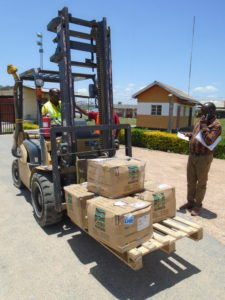 Thanks must go to Lhanbryde Primary School, its Tanzania committee, and Busega Scotland trustee Jenny Wallen, who organised the shipment. The transport costs were met by individual donations and through a small contribution from Busega Scotland funds.
Thanks must go to Lhanbryde Primary School, its Tanzania committee, and Busega Scotland trustee Jenny Wallen, who organised the shipment. The transport costs were met by individual donations and through a small contribution from Busega Scotland funds.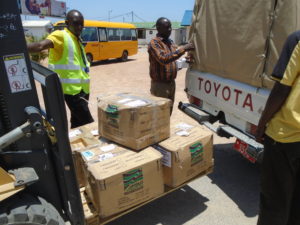
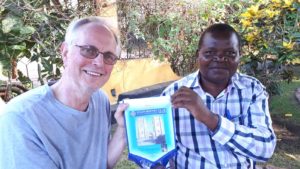
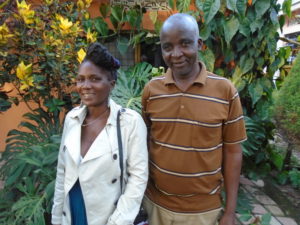
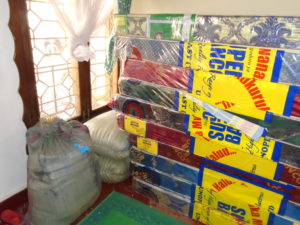
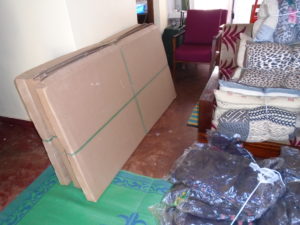
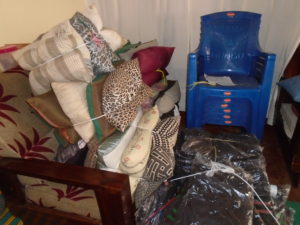
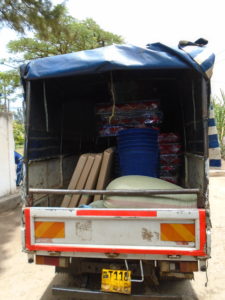
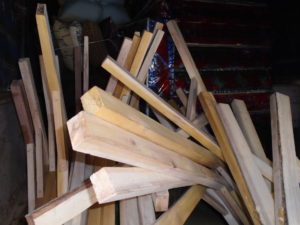
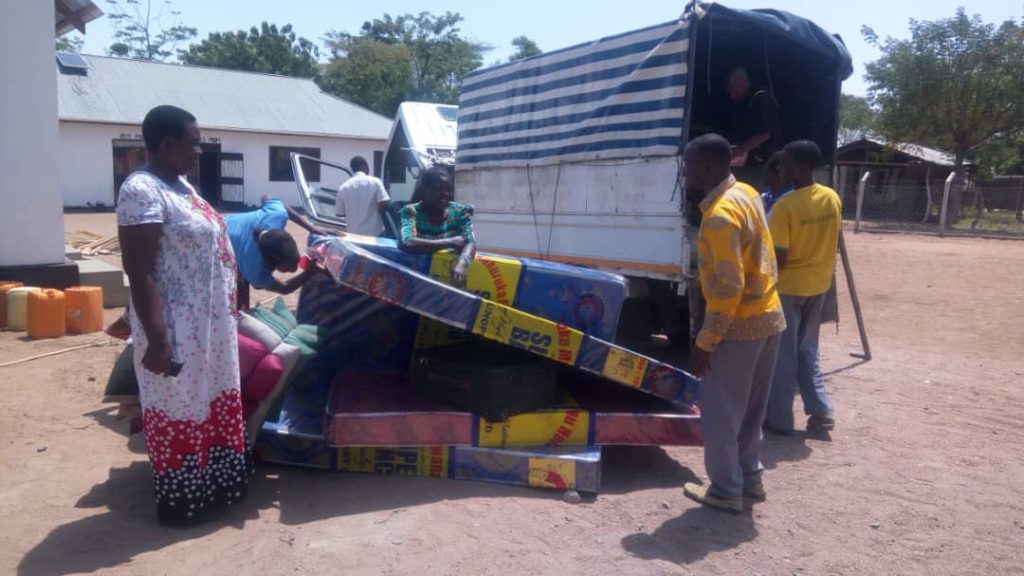
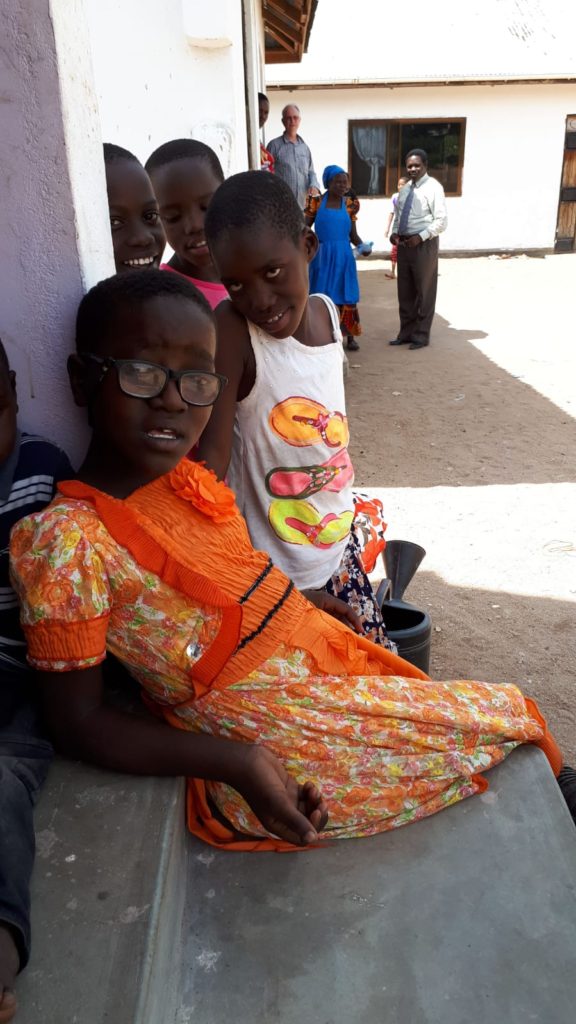 Christine and John have had the pleasure of meeting Shida for the first time over the last month. What a wonderful, spirited and happy young girl she is. She has grown so such since her arrival, despite a completely new environment and the onerous journeys for her eye operations. The children have made her feel so much at home and Shida has a special bond with matron, who has been with her on each of the hospital trips (five in total and a distance of over 5,000 miles).
Christine and John have had the pleasure of meeting Shida for the first time over the last month. What a wonderful, spirited and happy young girl she is. She has grown so such since her arrival, despite a completely new environment and the onerous journeys for her eye operations. The children have made her feel so much at home and Shida has a special bond with matron, who has been with her on each of the hospital trips (five in total and a distance of over 5,000 miles).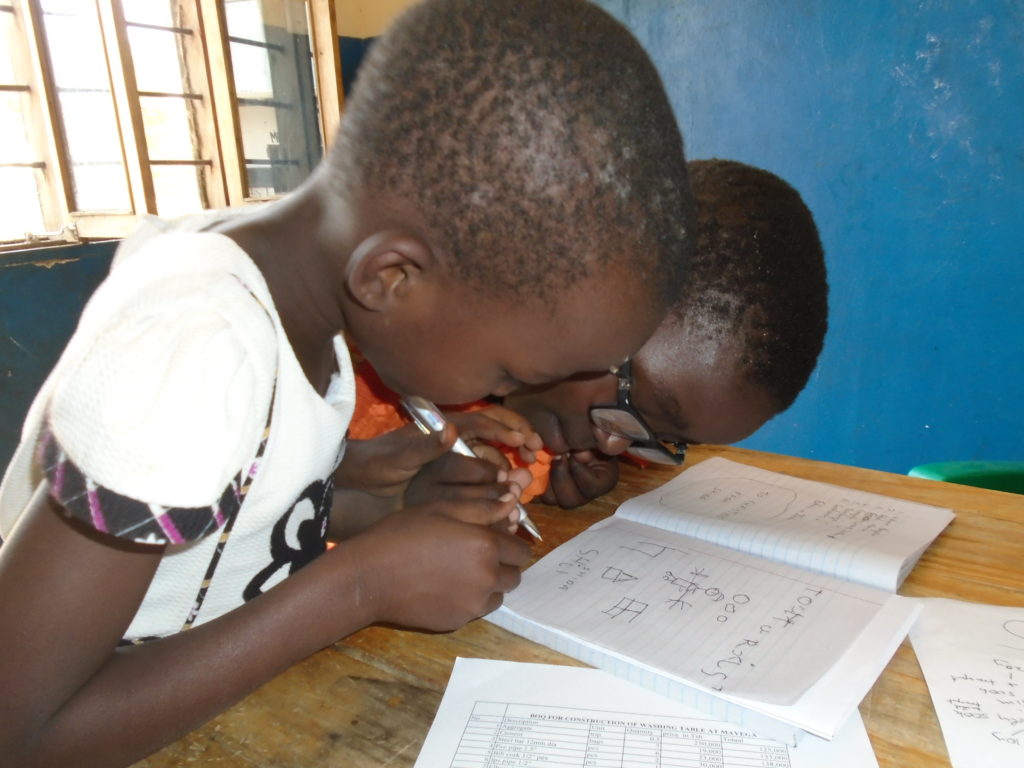
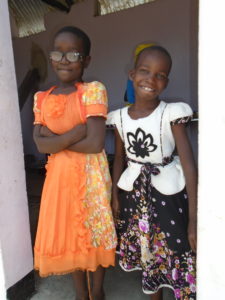
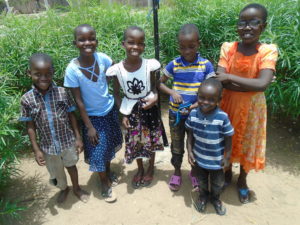
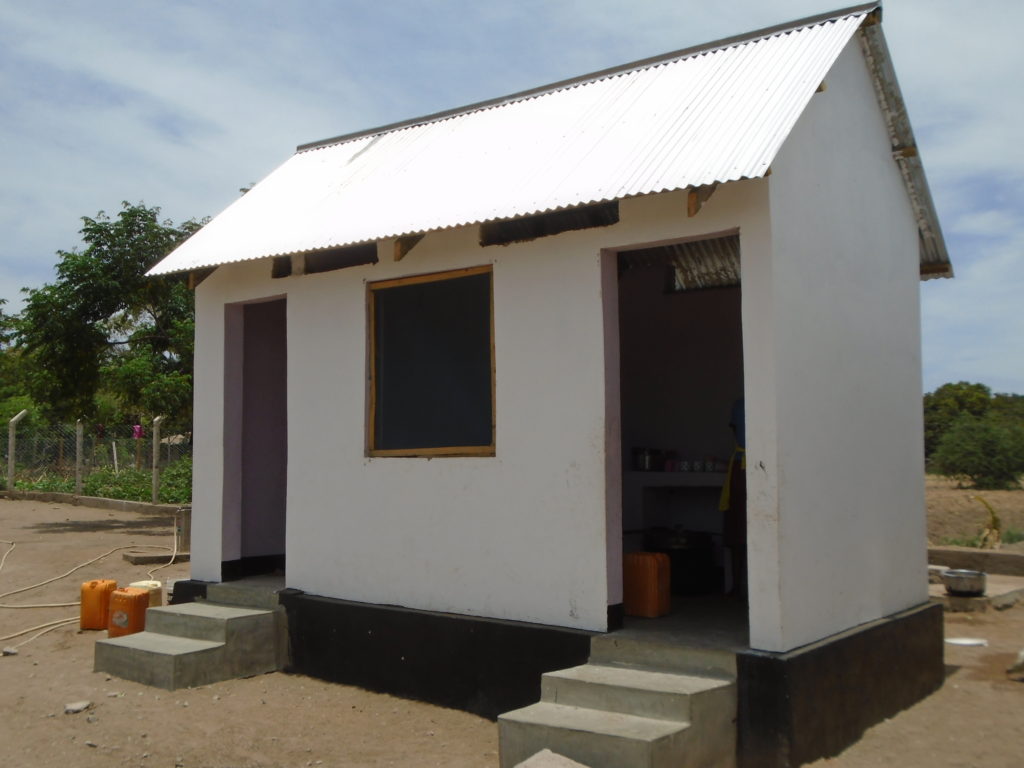 We are delighted to say that the construction of the kitchen at Mayega Children’s Centre has been completed, with tap and sink and wood burning stove. This is not only a significant step forward for the Centre but it shows perfectly how contributions from different sources can make a real difference.The contributors to the kitchen project have included:
We are delighted to say that the construction of the kitchen at Mayega Children’s Centre has been completed, with tap and sink and wood burning stove. This is not only a significant step forward for the Centre but it shows perfectly how contributions from different sources can make a real difference.The contributors to the kitchen project have included: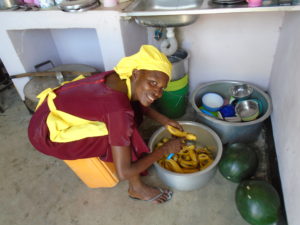
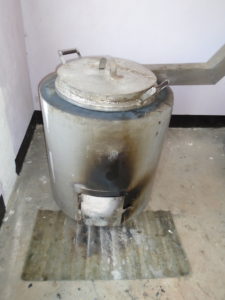
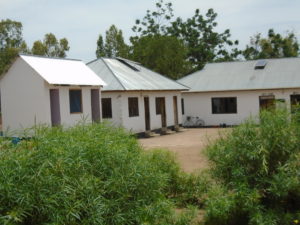
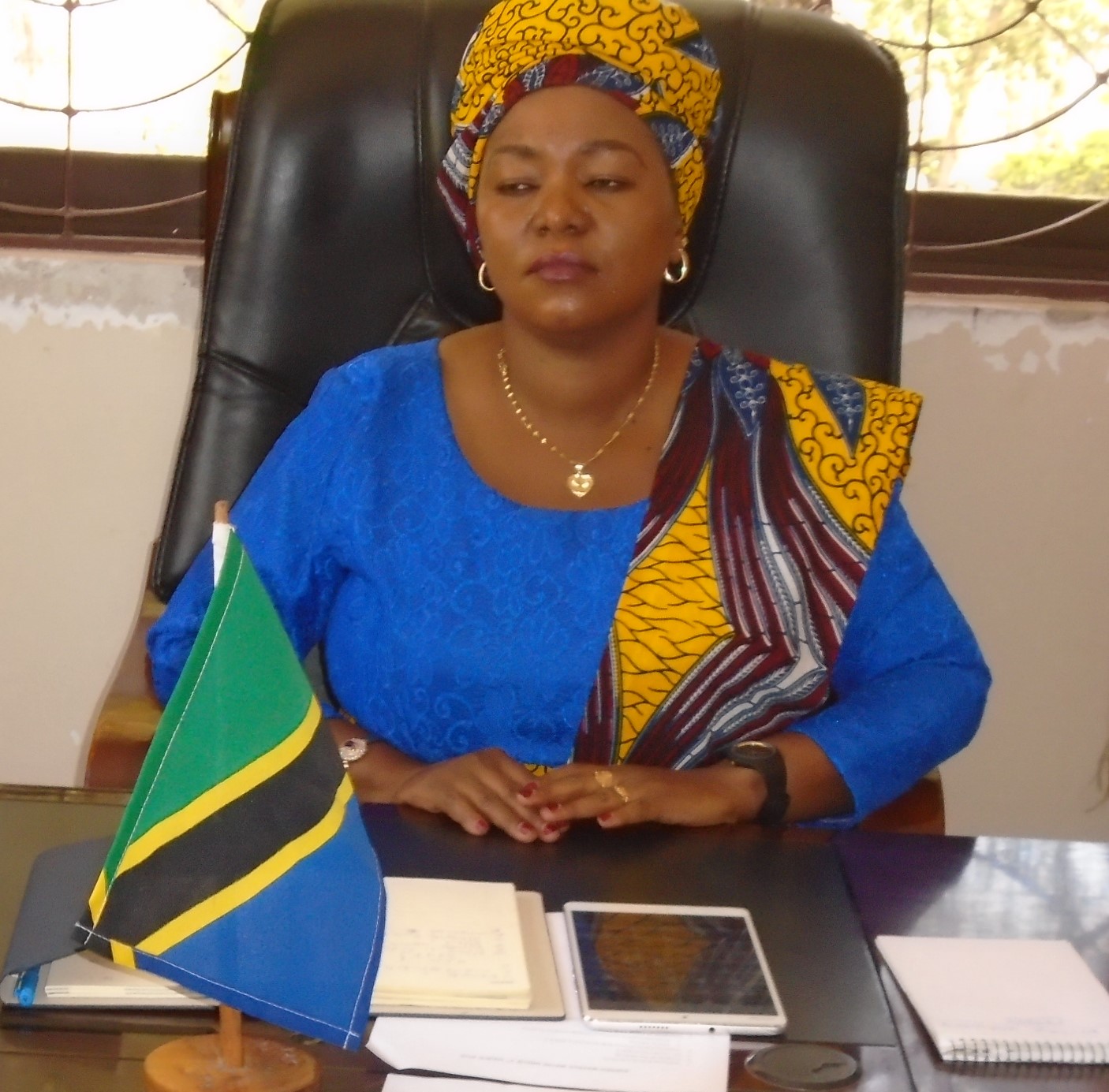 The Right Honourable Tano Mwera, is the representative of the President of the United Republic of Tanzania in Busega District, holding the post of District Commissioner. The Mayega Water Group had the honour of Mrs Mwera chairing its latest meeting. The guest list included representatives from Busega Scotland, Busega District Council and Mayega village. The Mayega village chairman and district councillor both attended.
The Right Honourable Tano Mwera, is the representative of the President of the United Republic of Tanzania in Busega District, holding the post of District Commissioner. The Mayega Water Group had the honour of Mrs Mwera chairing its latest meeting. The guest list included representatives from Busega Scotland, Busega District Council and Mayega village. The Mayega village chairman and district councillor both attended.